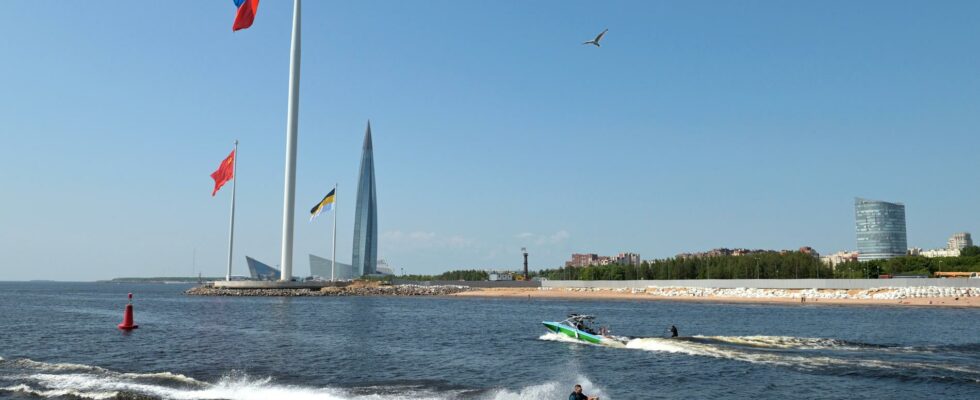unsaveSave
expand-left
fullscreen Flags in the wind outside Russian St. Petersburg. Picture from last summer. Photo: Pavel Lisitsyn/Pool Via AP/TT
With the signals of changed borders in the Baltic Sea, Russia is taking a leaf out of China’s Asian playbook, according to Finnish researcher Charly Salonius-Pasternak. He calls on the West to react strongly.
– To me, it is very clear that Russia wants to provoke here, and see where it leads, says Salonius-Pasternak, who works at the Institute for Foreign Policy in Helsinki.
He reminds that the Russian proposals on changing sea boundaries are a known approach from China, in disputes over water areas between that country and, among others, Taiwan, the Philippines and Vietnam.
– China has done this, now Russia wants to use the same playbook or manual, says Pasternak on the phone to TT.
And he thinks the West can react in a similar way, by sending ships for so-called Fon-ops (“freedom of navigation operations”).
– You sail in the areas that are internationally recognized as international waters, economic zones and so on – to mark: You, Russia, have said that you are changing the borders, but we do not accept it.
Martin Kragh, deputy director of the Center for Eastern European Studies at UI in Stockholm, emphasizes that much is unclear about what Moscow is now planning. But that it is serious regardless.
– You should not underestimate what Russia is doing – you are playing with the most basic principles of international law, the sovereignty of states.
He reminds that there are international procedures for drawing borders.
– If Russia had legitimate reasons, then there are mechanisms, maritime law conventions, to deal with that type of issue, says Kragh to TT.
